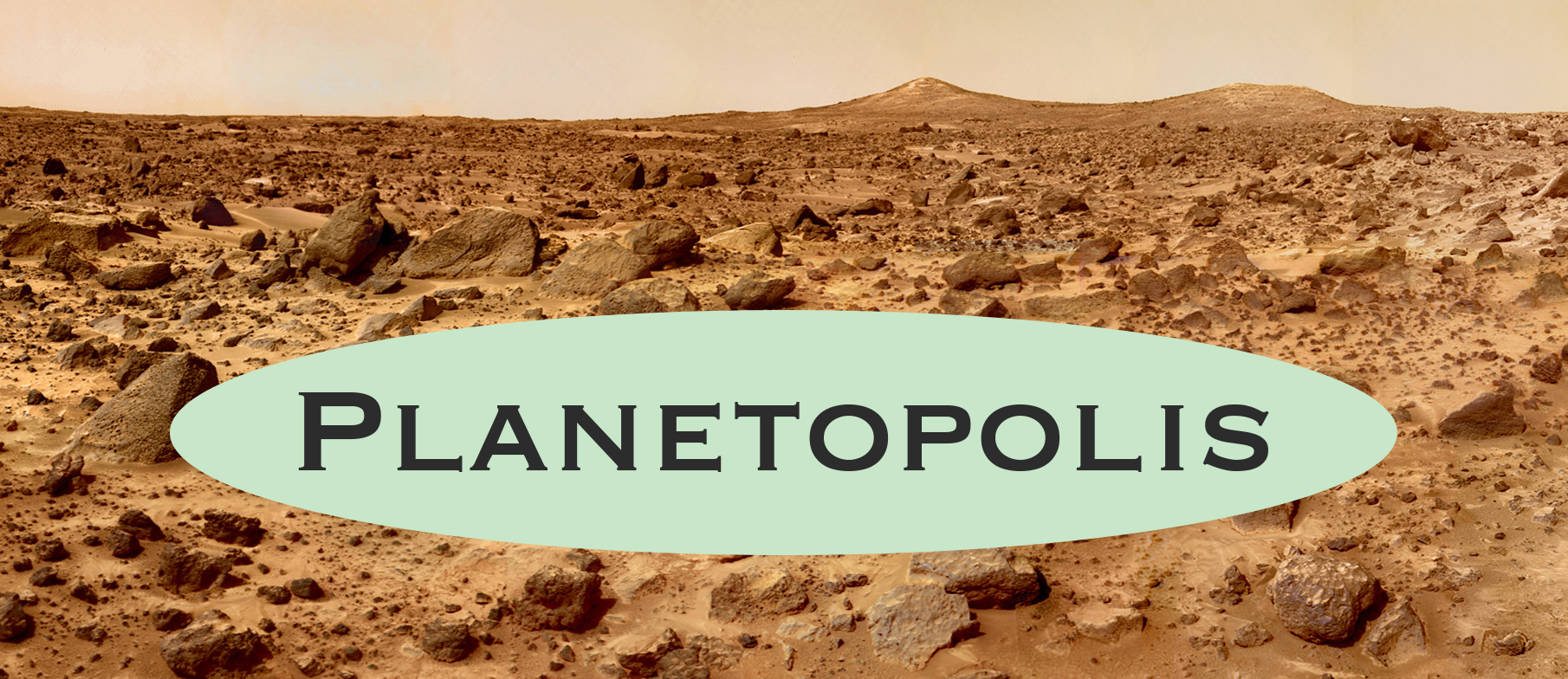= ASTRONAUTICAL EVOLUTION =
Issue 157, 1 January 2021 – 52nd Apollo Anniversary Year
| Site home | Chronological index | Subject index | About AE |
This post is also available on Wordpress
Planetopolis: Why Is a New Company Necessary?
Planetopolis – the project
I want to start the New Year by putting into practice a train of thought which has been impressing itself upon me in recent weeks.
Axiom: I wish to see a future of growth and progress for human civilisation, together with all the sciences that enlighten us and the technologies which make our lives so much easier than in the past.
This means: a future of expansion into the rest of the Solar System, given that the long-term survival of a high-population, high-tech industrial civilisation while confined on its home planet alone is highly dubious (as discussed in an earlier post).
The destination of the human journey after the next few centuries will either look like Star Trek, or it will look like Game of Thrones – this seems to be the unavoidable consequence of the currently unstable state of our civilisation (as discussed in another earlier post).
The most plausible location for the first permanent, self-sustaining extraterrestrial human settlement is Mars, given that surface conditions there are the least extremely dreadful compared with the worst conditions found anywhere on Earth. (It doesn’t matter if it turns out to be somewhere else – the Moon, or an O’Neill colony: we’ll run with Mars for the present, as it’s the focus of attention of the one venture worldwide which has a non-zero chance of actually making something happen.)
People have a pretty good idea by now of what an astronaut exploration mission to Mars would look like, with high-fidelity simulations being conducted in remote locations on Earth by NASA/University of Hawaii, the Mars Society, and others.
A permanent settlement would be a different matter! –
- Instead of half a dozen astronauts there would need to be thousands.
- A large-scale closed-cycle ecological life-support system would need to be in place.
- Recycling of all kinds of waste and discarded equipment and clothing would need to have been brought to a high level of completeness.
- Local resources would need to be mined and used to build machines and habitable infrastructure.
- Questions of the political organisation of the colony would become irresistible.
- Returning everybody to Earth in the event of a malfunction would be impossible.
The question has to be faced: if the supply line from Earth was cut for any reason in the decades after its foundation, would the colony still be able to survive?
The only way to get an answer before committing a huge effort to such a leap into the unknown is, again, through a simulation on Earth. This is why we need a programme of high-tech, progressively more remote, more permanent and more self-sufficient human settlements in desert locations on Earth itself.
I began to toy with this idea in 2016, then under the name Aridopolis. I wrote about it again in issue 18 of Principium (August 2017, p.4-11). But at that time there seemed to be no way ahead for the idea, and I felt resigned to seeing it fall by the wayside, ignored and ultimately forgotten.
Planetopolis – the company
The answer has, of course, been obvious for a number of years. Trust me to be so slow to see it.
What SpaceX is doing is to earn revenue from satellite launches with their Falcon 9 rocket. The profits from doing so in an innovative way (reusable first stage; fast prototyping and development cycle) provide the cash flow to support their more speculative programme aimed at Mars colonisation. The excitement generated by their engagingly presented public relations doubtless helps to attract speculative investment funds. And the profit-making and speculative sides of their business support one another by their shared reliance on big, reusable rocket vehicles.
The question is therefore: can a profit-making company active on Earth support a research programme into making a permanent settlement on Mars a practical proposition?
I’ve long believed that there’s no conflict between improving the ecological sustainability of our cities on Earth and building new cities on Mars. Quite the contrary: the choice which we as a species face is between a high-tech future and a low-tech one.
A high-tech future is one with industrial cities on both Earth and Mars, in both cases using similar technologies to maintain a low-impact lifestyle – on Earth, to save the natural environment, and on Mars, because there is no living natural environment to be parasitic upon, so the low-impact lifestyle is the only one possible. On the other hand, a low-tech future on Earth alone would require a massive reduction in global population size, and would reduce standards of living back to medieval levels. Considering that many countries would resist such a rejection of growth, it could probably only be achieved through world war, or else through some global natural catastrophe.
Star Trek versus Game of Thrones, in fact.
So the technologies we need for life on Mars are the same as those we need to be developing for widespread use on Earth in any case. Let’s set up a company – which I shall call Planetopolis – with two divisions:
- A profit-making division manufacturing and marketing ecologically improved products for sale to customers living in existing towns and cities on Earth.
- A research division using those same products to build and operate a series of experimental desert settlements on Earth, aimed at both prototyping new commercial products, and developing a lifestyle that can be transplanted with minimum fuss from Earth to Mars and elsewhere in the Solar System.
When one asks what those products might be, a number of answers suggest themselves –
- Cultured meat, avoiding the wasteful raising and slaughter of animals.
- Low-energy construction of buildings, using biofabrication.
- Clean energy, without the use of fossil fuels.
- Recycling of human and industrial wastes of all kinds.
When I began to research these things, I found that there’s a massive revolution in a whole range of clean technologies in progress right now. But it’s still at an early enough stage, in most cases, that there’s plenty of room for new start-ups to join in.
I need people who find my logic interesting to join me in defining exactly what this company will do, and thus put together an attractive prospectus to show to potential investors.
Clearly, I’m expecting to receive a lot of negative criticism. I’m not experienced in high technology business management, and there’ll be many difficult hurdles to overcome. Please visit the company website to find what I’ve put together so far, including a prospectus in the form of a modest book (92 pages) on Planetopolis available for free download, and my e-mail contact address:
Thanks, and I look forward to hearing from you!
Some more recent posts developing these ideas further:
- Planetopolis in an Age of Climate Change – Includes my video presentation at the BIS “Beyond the Moon” symposium (July 2021)
- Questions for Human Analogue Simulators of Mars – How can we demonstrate on Earth that a remote, isolated, high-tech desert settlement is a workable and sustainable proposition, even before tackling the Mars-specific features of low air pressure and gravity, high radiation and limited access? (December 2021)
- How Will the First Astronauts on Mars Spend Their Time? – Thanks to Elon Musk, Mars is no longer about scientific field trips for four to eight astronauts; it has now become a crash programme to build a self-sustaining city for a million people in the narrow window of time before the supply chain from Earth is broken by nuclear war, catastrophic climate change or hostile artificial intelligence (February 2022)
| Site home | Chronological index | About AE |

